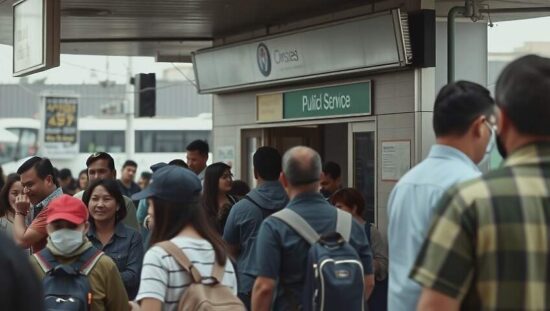The prospect of widespread strikes looms over Germany’s public sector as union Verdi intensifies its stance in ongoing wage negotiations. Verdi’s chairman, Frank Werneke, signaled in an interview with “Süddeutsche Zeitung” that the union is prepared to escalate industrial action, stating that employers should be aware of their capacity to exert pressure through strikes. This commitment comes ahead of crucial negotiations slated to begin in early December, impacting approximately 2.5 million public sector employees.
Werneke has explicitly challenged state governments to present “realistic” proposals early in the negotiation process, rejecting the current impasse characterized by what he deems inadequate offers. While previous actions have been limited to warning strikes, Werneke emphasized the potential for disruption across vital services, citing possibilities ranging from university hospitals and schools to police departments and winter road maintenance crews.
The union’s demand for a 7% salary increase has already been dismissed by Hamburg’s Finance Senator, Andreas Dressel, as “astronomical”. Werneke refuted the idea of conceding to a lower outcome mirroring previous agreements between the federal government and local authorities – a 5.8% salary increase over 27 months – suggesting a firm commitment to securing more substantial gains for workers.
Beyond wage disputes, Werneke launched a scathing critique of a faction within the CDU/CSU’s youth wing, accusing them of obstructing the coalition government’s pension reforms. He branded their position as “neoliberal haggling” and highlighted the detrimental impact of proposed further reductions in pension levels on younger generations. He expressed concern over the potential consequences for the nation’s political stability, questioning the ability of the ruling coalition to even adhere to agreements enshrined in their own contract.
Furthermore, Werneke directly criticized CDU leader Friedrich Merz, demanding a retraction of comments linking urban decay to immigration. He deemed such statements inaccurate and demeaning, asserting that individuals with migrant backgrounds enrich urban landscapes. He underscored that the core issue lies not with migration itself but with the increasing burden placed on municipalities without commensurate funding from the federal government. This reflects a widening rift and challenges the narrative dominating certain wings of the conservative political spectrum, highlighting a growing disconnect from the concerns of working-class citizens and municipalities grappling with resource constraints.





